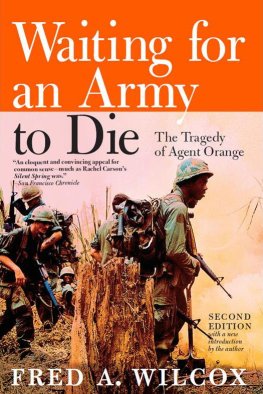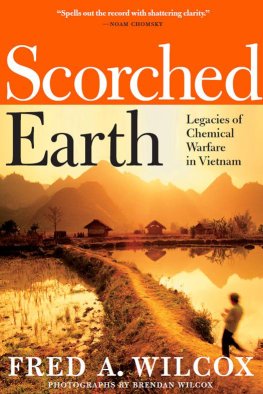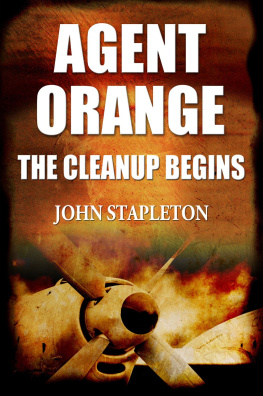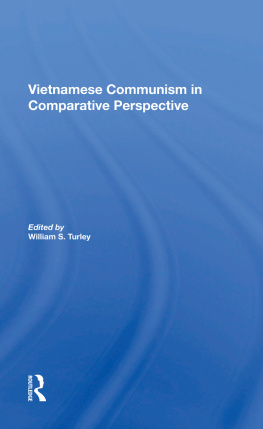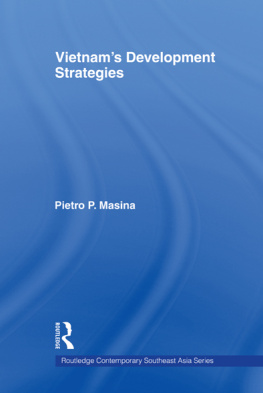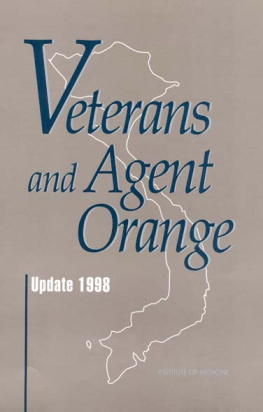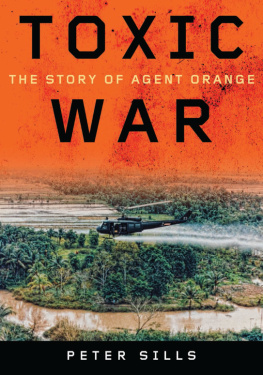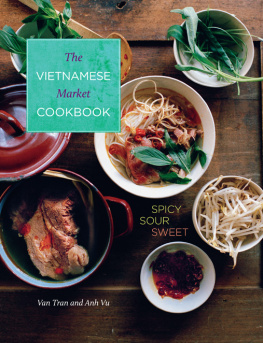Agent Orange and Rural Development in Post-war Vietnam
Vu tells the story of Vietnamese farmers who have survived a 30-year war of independence and unification, its damaging legacies in their living environment, and the unfamiliar pressure of the market economy.
Vietnamese famers are neither simply obedient beneficiaries of policy decisions made by higher authorities nor convention-ridden cyphers. Rather, they are sophisticated decision-makers capable of navigating the changes threatening to disrupt their lives over multiple generations. Vus research pays particular attention to those farmers whose families have suffered from direct and indirect exposure to the toxic herbicides popularly known as Agent Orange. She demonstrates that their priority has tended to be the protection of their existing assets, rather than pursuing the promise of new riches, and that this tendency has helped them maintain stability in a turbulent economic and political environment.
A fascinating study for scholars of Vietnamese anthropology and society, the book will also be of interest to sociologists and economists with a broader interest in the impact of economic and political change on rural lifestyles.
Vu Le Thao Chi is Assistant Professor at the Faculty of Policy Management, Graduate School of Media and Governance, Keio University, Japan.
Routledge Contemporary Southeast Asia Series
The aim of this series is to publish original, high-quality work by both new and established scholars on all aspects of Southeast Asia.
Securitising Singapore
State Power and Global Threats Management
Syed Mohammed Adha Aljunied
The European Union and Myanmar
Interactions via ASEAN
Edited by Ludovica Marchi Balossi Restelli
The State and Religious Violence in Indonesia
Minority Faiths and Vigilantism
Aan Suryana
Science and Development in Thai and South Asian Buddhism
David L. Gosling
The Arab Uprisings and Malaysias Islamist Movements
Influence, Impact and Lessons
Mohd Irwan Syazli Saidin
Islam, Blasphemy, and Human Rights in Indonesia
The Trial of Ahok
Daniel Peterson
Agent Orange and Rural Development in Post-war Vietnam
Vu Le Thao Chi
Ethnographies of Development and Globalization in the Philippines
Emergent Socialities and the Governing of Precarity
Edited by Koki Seki
For more information about this series, please visit: www.routledge.com/Routledge-Contemporary-Southeast-Asia-Series/book-series/RCSEA
Agent Orange and Rural Development in Post-war Vietnam
Vu Le Thao Chi
First published 2020
by Routledge
2 Park Square, Milton Park, Abingdon, Oxon OX14 4RN
and by Routledge
52 Vanderbilt Avenue, New York, NY 10017
Routledge is an imprint of the Taylor & Francis Group, an informa business
2020 Vu Le Thao Chi
The right of Vu Le Thao Chi to be identified as author of this work has been asserted by her in accordance with sections 77 and 78 of the Copyright, Designs and Patents Act 1988.
All rights reserved. No part of this book may be reprinted or reproduced or utilised in any form or by any electronic, mechanical, or other means, now known or hereafter invented, including photocopying and recording, or in any information storage or retrieval system, without permission in writing from the publishers.
Trademark notice: Product or corporate names may be trademarks or registered trademarks, and are used only for identification and explanation without intent to infringe.
British Library Cataloguing-in-Publication Data
A catalogue record for this book is available from the British Library
Library of Congress Cataloging-in-Publication Data
Names: Vu, Le Thao Chi, author.
Title: Agent Orange and rural development in post-war Vietnam / Vu Le Thao Chi.
Description: Abingdon, Oxon ; New York : Routledge, 2020. |
Series: Routledge contemporary Southeast Asia series | Includes bibliographical references and index.
Identifiers: LCCN 2019052682 (print) | LCCN 2019052683 (ebook) | ISBN 9780367898458 (hardback) | ISBN 9781003021377 (ebook)
Subjects: LCSH: Rural developmentVietnam. | Agriculture and stateVietnam. | FarmersVietnamEconomic conditions. | FarmersVietnamSocial conditions. | Agent OrangeHealth aspectsVietnam. | VietnamRural conditions.
Classification: LCC HD2080.5 .V77 2020 (print) | LCC HD2080.5 (ebook) | DDC 338.109597dc23
LC record available at https://lccn.loc.gov/2019052682
LC ebook record available at https://lccn.loc.gov/2019052683
ISBN: 978-0-367-89845-8 (hbk)
ISBN: 978-1-003-02137-7 (ebk)
Typeset in Galliard
by codeMantra
My sincerest appreciation goes to the families and children in Phu Cat, Vietnam. The stories about their life, often told in simple narratives, are the precious inspiration and valuable materials that I used to write this book. I dedicate it to these honest and hard-working people. Thank you for embracing me and making me feel at home whenever I am wandering in your community.
I owe a special debt to the late Professor Trinh Van Bao and Professor Tran Duc Phan, who helped me to build the very first foundation for my long-term commitment to the research in Phu Cat. I am grateful to Dr Truong Quang Dat for his untiring support for over 15 years and the friendship that blossomed as a result.
My deepest gratitude goes to Professor Michio Umegaki, my teacher and colleague, for numerous conversations and discussions in the classes, in the field, and in the whole process of making this book since its conception. Then there are the current and former students from Chi-kenkyukai (Lab) at Keio University who have accompanied me on nearly every trip to Phu Cat, especially since 2014, and helped me with data collection. Their tireless research efforts are an indispensable source of energy for me. Many of them have continued to extend their support for the project, even after their graduation. Their support has come whenever I needed it.
Speaking of support to my work, I wish to thank an unlikely family from afar, the Campbells in Denver, Colorado, for being faithful readers of my works, big and small.
As always, my own family has never failed to push me to pursue life, as an educator or as a scholar, that is worth living.
Finally, I wish to express my appreciation to Simon Bates at Routledge, who, from the initial meeting in early 2019, has supported the publication of this project, and to Tan Sheng Bin, who has been very crisp and efficient in our exchanges through the final phase of the books publication.
This book is about how Vietnamese farmers faced and coped with uncertainties risks in the years after the Doi Moi reforms in the second half of the 1980s, which unleashed significant social, political, and economic changes. Among them, a small group of families stand out because of their children and their various mental and physical disabilities. The disabilities are suspected to have been induced by direct and indirect exposure to the wartime use of toxic chemicals popularly known as Agent Orange. This group of families is unique in the specific difficulties they face, but these do not prevent them from representing a larger group of Vietnamese farmers. The groups uniqueness is not as prominent when we carefully examine their behaviour.


